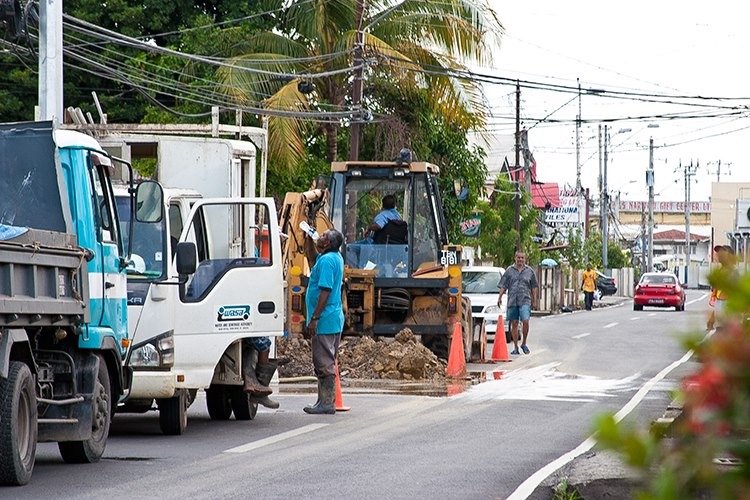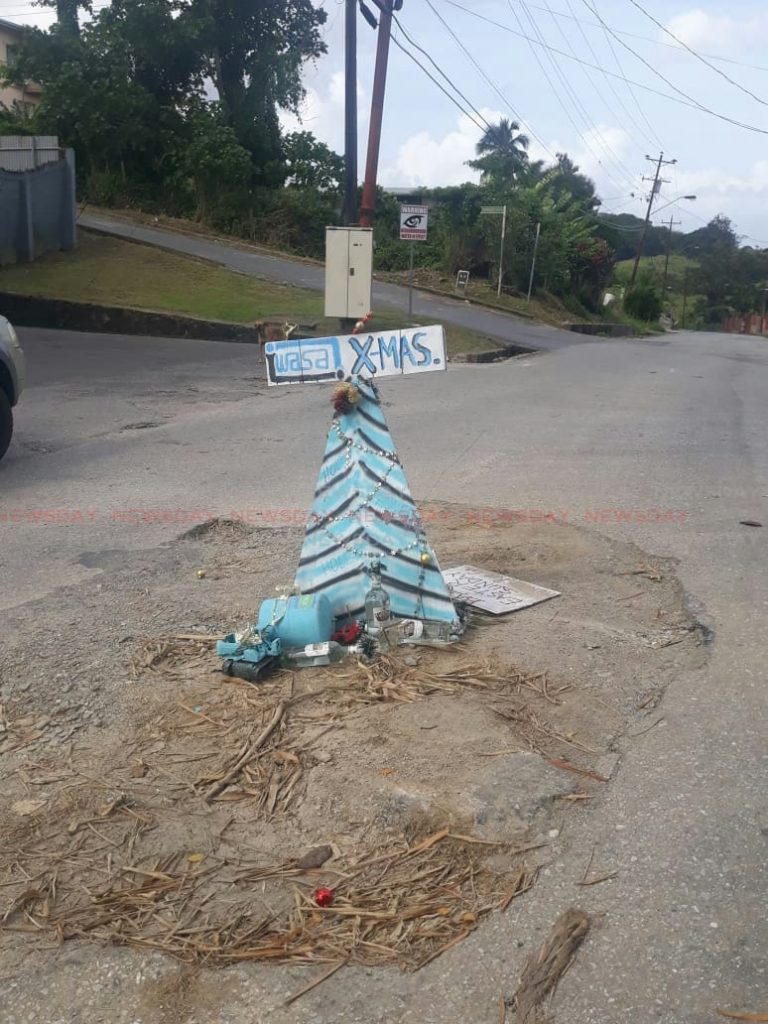Why WASA digs up newly-paved roads

When a road in TT is paved, drivers and commuters rejoice. But this rejoicing often turns into annoyance at the Water and Sewerage Authority (WASA) for digging up parts of these roads just a few days later to do repairs. Many even jokingly say WASA actually stands for Workers Against Smooth Asphalt.
The most recent examples include the work on Ariapita Avenue, Port of Spain, and in Otaheite.
But the company wants to assure the public it has good reason for doing so.
Newsday chatted with senior manager, corporate communications of WASA Daniel Plenty, who shed light on the issue.
Plenty said the Ministry of Works and Transport contacts WASA before any roadwork begins, and the authority then repairs existing leaks along the route.
But while the roadwork is being done, heavy equipment often damages the pipelines buried under the road, leaving WASA no choice but to fix it.
“If leaks occur, the authority has no other option than to excavate the newly paved area, in order to repair the leak that developed during the paving exercise," Plenty said.
“In the case of a high-leakage pipeline, the authority would undertake installation of a new pipeline and decommissioning of the old one before roadworks. This approach was followed along Fishing Pond Road in North East Trinidad.”
He said the most common damage was to water service connections to individual customers, since these are usually more shallowly buried than the mains.
Asked how important these repairs are after a road is paved, he said they are critical.
“This is also an essential part of our water conservation drive.”
These repairs are co-ordinated with the Works and Transport Ministry and usually take 24 hours .
When asked if the workers who pave the roads need to do a better job to prevent such damage, he did not point any fingers.
He said, “In some instances, the authority's pipelines are aged and in a deteriorated state along the routes where roadworks are being undertaken.”
But one additional issue people often have with this type of roadwork is that the roads are not always properly repaired after the pipelines are fixed. This even sparked a recent trend of putting placards into potholes that people believe are a result of WASA not properly fixing the area it dug up.

Plenty said WASA will continue to work closely with the Works and Transport Ministry “in relation to the execution of restoration works that may potentially affect our pipeline network.”
Newsday tried to reach Minister of Works and Transport Rohan Sinanan for a comment but all calls went unanswered.

Comments
"Why WASA digs up newly-paved roads"